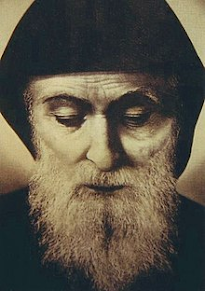Are Human Embryos Human Beings?
National Review
March 18,2024
By Robert P. George
Whether human embryos are human beings is a question resolved by human embryology and
developrnental biology.
Among the constants in hurnan history is this: When people want to justify killing, enslaving, or
otherwise abusing a class of their fellow human beings, they first dehumanize them. I suspect that
the dehumanization of the victims is typically meant not only to persuade others to go along or look
tlre other way; it is also to convince the dehumanizers themselves.
As a matter of scientifically demonstrable fact, human embryos, no less than human fetuses,
infants, toddlers, children, adolescents, and adults, are human beings
-
living members of the
species Homo sapiens. Those words
-
"embryo," "infant," "adolescent," and so forth
-
do not
name different kinds of entities. They name the same kind of entity (a living member of the human
species, a human being, like you or me) at different stages of development.
But some today, for various reasons, want to justify the deliberate killing of human beings at early
stages of their development
-
the embryonic, fetal, even infant stages. And some want to justify
the deliberate killing of people in certain conditions
-
those suffering, for example, from cognitive
disabilities or severe dementias. So, as usual, they are at pains to deny that the victims are
human. They insist that those of whom they want to license the killing are "nonhuman,n' or
"subhuman," or "prehuman," or "not fully human," or whatever.
And so, Washington Post columnist and editor Ruth Marcus, someone I like and respect despite
our deep differences on moral and political issues, set out in a recent column to show that I'm
wrong to say that human beings in the embryonic stage of development are in fact human beings.
She invites her readers to reason backward: lf human embryos were human beings, then things
we (liberal readers of the Washington Post) believe, things we want to be true, things that are
really important to us, would be false. But we
-
somehow - just know that they're not false'
Elective abortion is a woman's right, and a regime of legal and widely available abortion is an
enlightened and humane policy, so . . . embryos must not be human beings.
More on Pro-Life
It's that constant in human history again: Those whom others would kill or license the killing of,
they first dehumanize.
My friend Ruth's denial that human embryos and fetuses are human beings is a flat denial of
science. lt's true that gametes
-
sperm and egg
-
are not human beings. They are both
genetically and functionally parts of other organisms
-
a man and a woman. But when they join,
the resulting embryo has a new and complete genome of its own. More important, the embryo does not function as a mere part of anyone. He or she
-
for in humans, sex is established from
the start
-
functions as a whole organism. Like infants, toddlers, or teens, embryos and fetuses
will
-
unless prevented by disease, violence, lack of nutrition or warmth, etc.
-
develop by an
internally directed and gapless process into later stages of the life cycle of a human being. They
will do so with their unity, determinateness, and identity intact.
What is the alternative? Since embryos are not inanimate, like minerals, but alive, each must be
either a whole organism or part of one. But a part of which organism? The only candidates would be the man and woman who produced the gametes, but again, embryos are genetically and
functionally distinct from both
-
as distinct as any children from their parents. So, embryos must be whole organisms. But any whole organism belongs to some species
-
and which could it be in
this case, if not Homo sapriens? Embryos have the same (in the typical case) 46 chromosomes as
newborn humans, embodying the same program, unfolding along the same trajectory: infant, child,
adolescent, adult, geriatric. So, embryos can only be whole organisms of the human kind. Every
textbook of human embryology and developmental biology confirms it. There is no scientific
controversy about it.
Thus, Ruth Marcus, for example, is the same whole, distinct, self-integrating human organism who
was, at earlier stages, the adolescent Ruth, the child Ruth, the infant Ruth, the fetal Ruth, and, at
the very beginning, the embryonic Ruth Marcus. Things happened
-
some of lasting significance
-
to the individual who is now the adult Ruth Marcus when she was an embryo and a fetus, just
as some life-shaping things happened to her in adolescence, childhood, and infancy. The adult
Ruth Marcus is biologically continuous with the embryonic Ruth Marcus. She is numerically
identical to the embryonic Ruth Marcus. That is why IVF pioneer Dr. Robert Edwards, producer of
the first "test-tube baby," recalling Louise Brown as an embryo in a petri dish, was not talking
gibberish when he said at her birth: "She was beautiful then and she is beautiful now."
Edwards went on to speak with perfect scientific accuracy of the embryonic Louise Brown as "a microscopic human being
-
one in its very earliest stages of development." As he and a co-author
put it, the embryonic human being is "passing through a critical period in its life of great
exploration: it becomes magnificently organized, switching on its own biochemistry, increasing in
size, and preparing itself quickly for implantation in the womb." What they describe is the self-integration and internally directed process of development that I mentioned a moment ago.
The bottom line is a fact that my friend Ruth is desperate to resist: Embryos and fetuses do not
"gradual ly" become human beings. That ls unscientific gibberish. Our development to adulthood is
gradual, to be sure, but we come into existence as human beings
-
whole living members of the
species Homo sapiens
-
and develop as (not info) human beings. Embryonic and fetal human
beings differ from infant human beings in many ways. But then infants differ dramatically from
adults. None differ in kind, as humans do from nonhumans.
Now, one might ask: Since Ruth is so desperate for abortion to be right
-
and a right * why does
she not just say that embryos and fetuses are human beings, but not yet "persons"
-
that is, not
yet beings with dignity or rights equal to yours and mine? That is exactly what sophisticated pro-choice philosophers and bioethicists say, including my famously candid and consistent Princeton
colleague, Peter $inger. I suspect that there are two reasons.
First, the logic of this view leaves too many human beings out. As Singer makes clear, if embryos
and fetuses are not persons, it must be because they cannot, here and now, exercise certain
mental powers such as self-awareness. But then neither can infants. So, infants wouldn't be
persons either, and infanticide, no less than abortion, would be morally acceptable - a conclusion
Singer embraces. So, a couple could legitimately conceive a child and give birth to it for the
purpose of, say, harvesting vital organs to save the life of an older child.
Second, to adopt Singer's position is to give up the ideas of human equality and human rights
(rights that people have in virtue of their humanity). After all, if the thing that gives us moral status
comes in degrees
-
the degree of development of some mental capacity
-
our moral worth must
come in degrees, too. Even among persons, some would have to count for more than others,
having more of the trait that confers moral worth. Yet Ruth, I'm sure, wants to hang on to the idea
that all humans have equal moral worth and basic human rights (and for that, I salute her). So, to
justify abortion she needs to posit a difference in kind, not degree, between unborn human beings
and newborns. She needs the unborn to be nonhuman. Professor Singer's advantage is that he
doesn't need to resort to science denial.
To her credit, Ruth does gesture at one argument for the notion that human embryos are
nonhuman. She borrows it from another friend of mine, the Harvard political theorist Michael
Sandel. lt's superficially plausible but falls apart on inspection.
To show that embryos differ in kind, not just in degree of development, from human beings at later
developmental stages, Professor Sandel offers an analogy:
Although every oak tree was once an acorn, it does not follow that acorns are oak trees, or
that I should treat the loss of an acorn eaten by a squirrel in my front yard as the same kind
of loss as the death of an oak tree felled by a storm. Despite their developmental continuity,
acorns and oak trees are different kinds of things.
The fact that we mourn the loss of mature oaks but not acorns does not, however, prove that they
differ in kind. After all, we don't mourn the loss of oak saplings, either, yet it's clear that saplings
and mature oaks are the same kind of thing. Our reactions only show that we don't value oaks
because of the kind of thing they are at all. We value them for their magnificence
-
a matter of
degree. And in the case of oak trees, that is perfectly reasonable.
But the basis for valuing human beings is profoundly different, which is why the analogy fails. As
Sandel acknowledges, human beings count because of the kind of entities they are. That is why all
human beings are equal in basic dignity and human rights. Though we value mature oaks more
than saplings, we do not value mature humans
-
adults
-
more than infants. And while we prize
oaks for their magnificence, we do not think that the most developed humans
-
say, a wonderful
athlete like Jim Thorpe or a brilliant physicist like Albert Einstein
-
are of greater moral worth than,
say, the physically frail or mentally impaired. We would not tolerate the harvesting of organs from an ill or cognitively disabled person to save a Jim Thorpe or Albert Einstein. And we do not tolerate
the killing of infants, which on the proposed analogy would be analogous to the oak saplings
whose destruction (e.g., in forest management) we don't mourn.
I began by mentioning a constant in human history. I will conclude by noting a constant in the
rhetorical stratagems of abortion advocates: the ubiquitous suggestion that the pro-life view is
really just a religious one, and that pro-life advocates would impose their religious ideas on those
who don't share their faith. Thus says Ruth, "however much antiabortion advocates insist that their
view is rooted in science, they also tend to be guided by a religious philosophy with which other
Americans simply disagree."
Of course, many of the world's religious traditions rightly affirm the inherent dignity of every human
person. And many decry the violence of abortion, infanticide, and euthanasia
-
just as they affirm
the dignity of young women, and so decry sex trafficking. Some, it is true, do not condemn elective
abortion (although the suggestion, occasionally made, that Judaism is one such religion would be
fiercely contested by such eminent scholars of Jewish law and ethics as the late Chief Rabbi of
Britain lmmanuel Jakobovits, Rabbi David Novak, Rabbi J. David Bleich, and many more). And
certainly, there is nothing wrong with people bringing religious arguments to the public square. lt
was not wrong when Martn Luther King Jr. unabashedly did it in the struggle to end segregation
and Jim Crow. And it is not wrong when faithful Catholics, Protestants, Jews, or Muslims do the
same in their fight against the lethal violence of abortion.
But all this business about "imposing religion" is a sideshow. Whether human embryos are human
beings
-
living members of the species Homo sapiens
-
is a question resolved by human
embryology and developmental biology. lt isn't any more distinctly theological than the age of the
earth is. And matters of justice and human rights
-
what is morally owed to human beings and
whether all human beings are bearers of dignity and rights
-
are not the exclusive province of
theology either. Otherwise, we couldn't protect any human beings and their rights without
"imposing religion."
True, the principle that all human beings have moral worth is a contested philosophical claim. But
so is the idea that some human beings
-
those in the embryonic, feta!, and infant stages, and
those who are physically severely disabled or cognitively impaired
-
lack moral worth. There is no
morally neutral position.
The real difference is this. The pro-life view depends on an undisputed scientific fact plus a moral
principle that explains and vindicates the worth of infants and the cognitively impaired, and affirms
the profound, inherent, and equal dignity of every member of the human family. The defense of
elective abortion depends on a moral view that must deny these points, a biological view that
contradicts science. or both.
Pax et bonum








































.jpg)


.jpg)
.jpg)
.jpg)
.jpg)
.jpg)
.jpg)
.jpg)
.jpg)
.jpg)
.jpg)
.jpg)
.jpg)
.jpg)
.jpg)
.jpg)
.jpg)
.jpg)
.jpg)
.jpg)
.jpg)
.jpg)
.jpg)
.jpg)
.jpg)
.jpg)
.jpg)
.jpg)
.jpg)
.jpg)
.jpg)
.jpg)
.jpg)
.jpg)
.jpg)
.jpg)